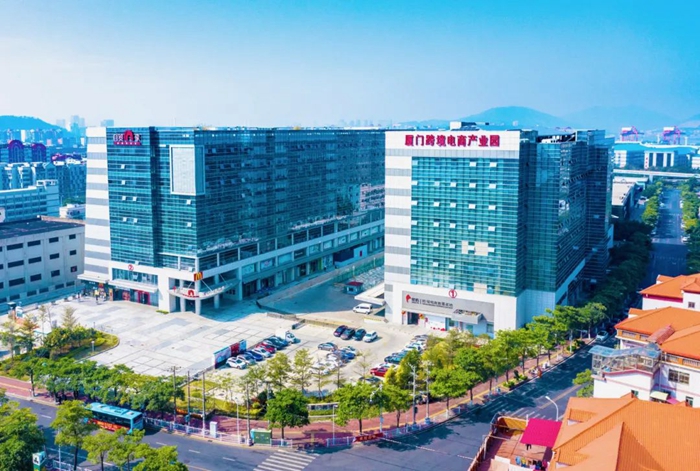
The Xiamen Cross-border Electronic Commerce Industrial Park. [Photo/Xiamen Daily]
The second session of the 14th National People's Congress (NPC) and the second session of the 14th National Committee of the Chinese People's Political Consultative Conference (CPPCC) recently commenced.
Delegates and members are actively providing suggestions and proposals, including some concerning Xiamen.
Feng Hongchang, a deputy to the NPC and a member of the Party committee of Xiamen Container Terminal Group, proposed expediting the introduction of policies to cultivate highly-skilled talent in the digital field, known as "digital craftsman".
This move aims to provide robust talent support for the advancement of industrial digitization, digital industrialization, and the construction of a digital China.
Feng suggested the establishment of a special cultivation plan to construct a multi-level talent development system for "digital craftsmen". This would involve exploring a new type of apprenticeship system within companies, deepening the integration of industry and education, and promoting collaboration between schools and enterprises.
Additionally, he proposed the implementation of customized training and packaged training programs.
Xia Xianpeng, a member of the CPPCC National Committee and chairman of the Fujian Provincial Committee of the Revolutionary Committee of the Chinese Kuomintang, submitted a proposal to support Xiamen in piloting cross-border e-commerce tax incentives, aiming to facilitate the high-quality development of foreign trade.
Firstly, Xia suggested allowing pilot areas to moderately reduce the applicable tax rates based on enterprise profits.
Secondly, he advocated supporting Xiamen's official comprehensive cross-border e-commerce service platform in aggregating cross-border e-commerce data, which would serve as a reference for tax supervision.
Lastly, he recommended including the "9810" model (cross-border e-commerce export to overseas warehouses) exports in the category of cross-border e-commerce retail, and applying the so-called "tax exemption without invoices" and "determination of income tax for collection" policies.